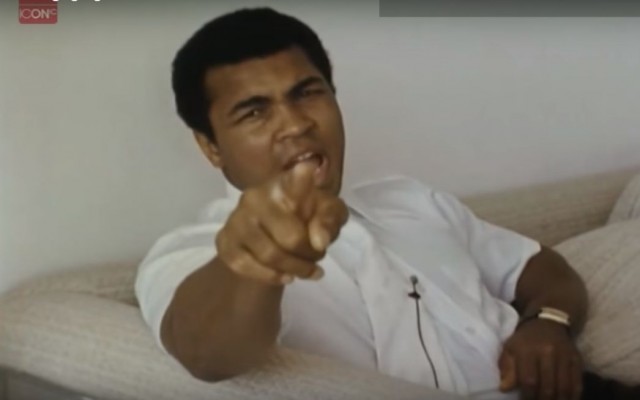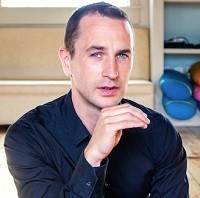
A while back, I lost my cool with someone in a meeting.
I felt this person was being difficult and not “getting my point,” so after receiving a few digs, my spiritual principles went out the window, and anger took over. This was war.
It was one of those moments that makes an onlooker’s day. In the middle of the vast and quiet open-plan office, those on the phone in the outer corners of the room made excuses and ended their calls, moving in for a closer view. This was going to be good. They settled into their ringside seat as I argued, blamed and shouted.
Then a lone, but familiar, voice from the stands interrupted the drama: “Michael, you’re a meditation teacher. Drop it.”
It was one of those nightmare situations, where I—hundreds of miles from home—wondered “what on earth are the odds that someone knows me here?” But here they were.
I fell silent. And the room fell silent, apart from a few laughs. I had just been “outed” as a Personal Development teacher, while ranting and raving at someone in public.
No big deal, you might say—but there was a time in my life when I would have been totally humiliated and shamed by this. I would have been concerned for my reputation and left feeling like an idiot. Before would have been different: “How dare I teach what I teach and be such a neurotic mess!” my ever-helpful mind would have told me, as I relentlessly looked for approval from others, rather than giving it to myself.
But in this moment, it was the perfect experience to show me how far I’d come. I found myself quick to be okay with myself and move on—which is the basis of what I teach. I’d ranted and raved, and so what? I’d passed the test.
Many people have made enlightenment into a competition about who can be the most outwardly “good”—as in passive, docile and repressing their true personality in fear of looking “unspiritual.” This is not living, and it’s not spiritual. After all, babies who glow with the promise of life are full of character and emotion. They get angry and scream, then laugh and turn everything into joy. We are so envious of them we sometimes say, “don’t be such a baby” to other adults who express themselves naturally.
How backwards the idea of living has become.
Life is not about perfection, but practice. Athletes don’t stop training, and neither do we—and that’s a good thing. The athlete’s joy isn’t the 10-second sprint, but the whole lifestyle attached to it. Life’s not about waiting for a finish point, but enjoying the journey with all its uphills, downhills and exciting twists and turns. Sometimes we might see a turn in the road as “something going wrong,” but that’s our perception. What if all of our journey was good?
If we caught a gold-medal Olympic sprinter right after his training session, we might think he was the worst runner we’d ever seen: an amateur, a fraud. Because in that moment, he’s not performing at his highest level. In the same way, many of us have our issues going on and are just trying to get through the “resistance training” of life. But when we’re on form, we are experts at what we do because of the tough times, not despite them.
The athlete understands that resistance training is a positive—the fact that his muscles are exhausted doesn’t make him rubbish. It is actually the exact opposite. The exhaustion is the very thing that makes him great.
I’ve noticed many “New Age” teachers and students alike spending a lot of time and effort “looking good,” almost terrified of making a mistake in public in the fear of “being negative.” I was once like this, and it’s an absurd and unpleasant way to live. It also produces more than a few teachers living double lives, scared they’ll be found out for (shock and horror) being human.
Freedom means we allow ourselves to make mistakes, to be “negative,” to mess up. Our work is to face our situation directly and looking for the lesson in it. It’s owning our humanity, not trying to be a “spiritually perfect” human—a reality that never existed. A myth that doesn’t inspire, but rather convinces people to be hard on themselves.
There’s a practice I find helpful, when faced with tough situations, that I’d like to share:
1. Get a sheet of paper and write down at the top “Good things about…” In my case, “Good things about being recognized as a Personal Development teach while in a fit of rage.”
2. Then tell it like it is. Face exactly where you are and look for the good in it. For example: “It was character building,” or “It should have happened because it did,” or “It forced me to be more authentic, which is a quality I regard highly.”
3. Keep on going until you can feel genuine happiness about what happened.
In a short period of time, I was able to laugh about what had happened and see the benefit in the situation. It was the perfect “training” I needed for my life experience.
It’s important to remember that self-love isn’t just accepting the parts of ourselves or our experience that we like—it’s accepting all parts of ourselves and our experience. By accepting whatever’s going on, we allow solutions to appear and our lives begin to flow with more ease.
Forget this never-ending journey to enlightenment. We are fine, just as we are, right here and now. And realising that counts as enlightenment in my book.
Author: Michael James
Image: YouTube
Editor: Nicole Cameron






Read 0 comments and reply